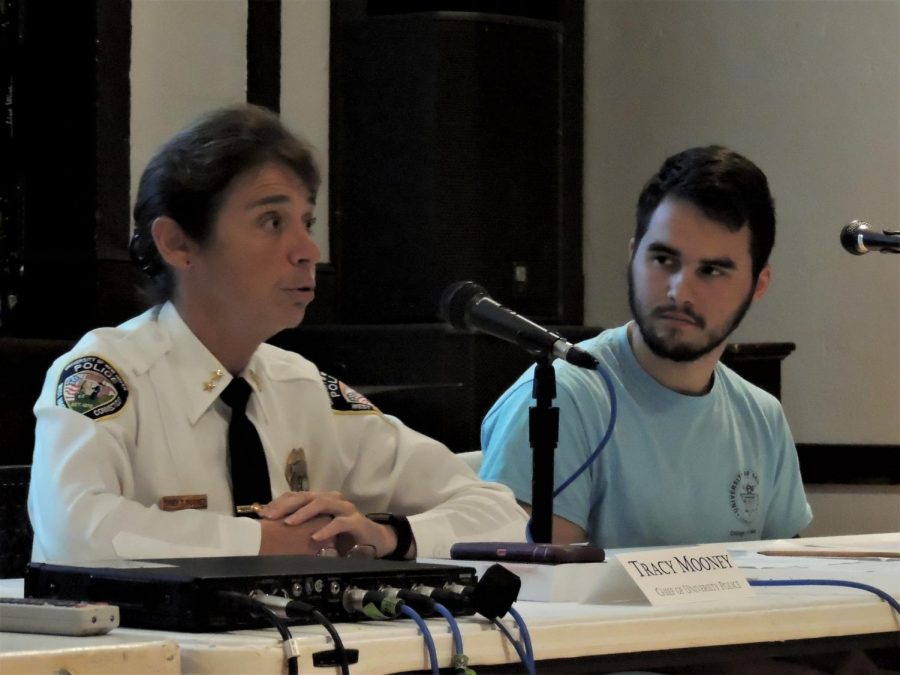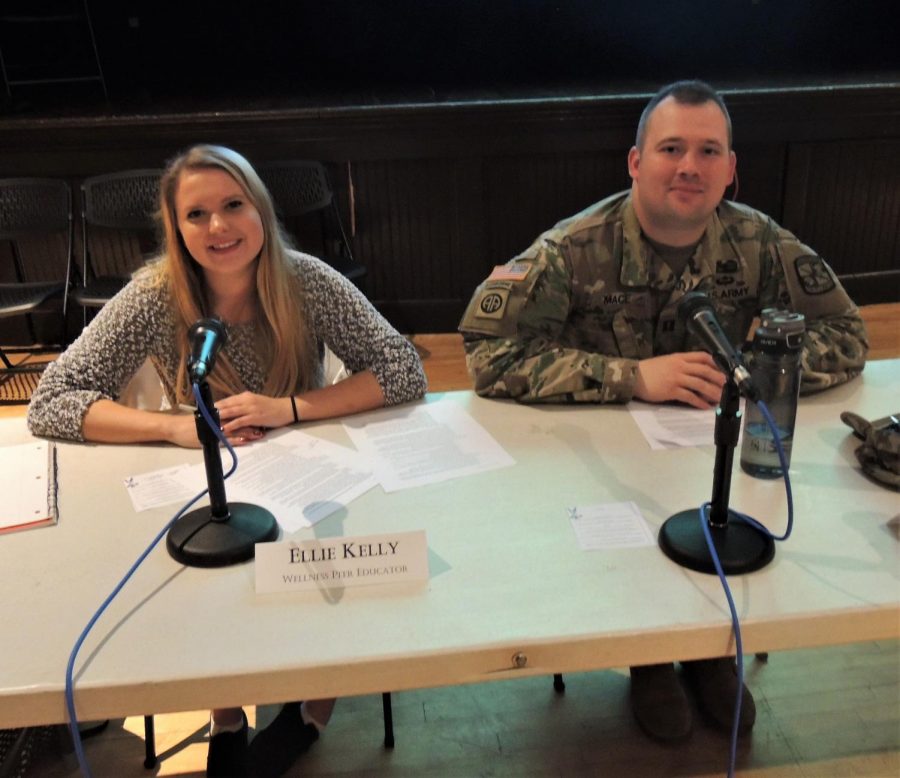Students Hold Panel on Consent
On Thursday, Nov 2, the Dean of Students Office held a panel on consent under the It’s On Us campaign. The campaign is a cultural movement that aims to shift the way people think about sexual assault, and looks to motivate all members of the community to get involved in efforts to prevent sexual violence.
The panel included the VP of Operations for USGA, Nick Mroczka,, Chief of University Police, Tracy Mooney, Military Science professor, Cpt. Cody Mace, Wellness Peer Educator, Ellie Kelly, and Ashley Dunn, an assistant director for student life and Title IX Compliance for the dean of students.
The panelists gave a definition of sexual violence as a continuum behavior and ranges from low, mid and high level. Low level are things like cat calling, mid-level is when someone makes derogatory comments on someone’s body and high level would be stalking, harassment or rape. Sexual violence can also have a third party involved.
Mooney said the police department gets involved for all levels of sexual violence. The university’s Title IX document includes other examples of sexual misconduct, which includes sexual assault, non-consensual sexual contact, non-consensual sexual intercourse, sexual exploitation, sexual harassment, dating violence, intimate partner violence, domestic violence, stalking and intimidation.
Consent is an understandable exchange of affirmative words or actions and must be freely and actively given. Parties are actively participating through clear verbal and nonverbal communication, meaning they aren’t incapacitated or intoxicated. Consent can be withdrawn at any point and participants must stop. A simple “no” or verbal or nonverbal equivalent means a withdrawal of consent, as stated in the Title IX document.
The university’s affirmative consent policy is a “yes means yes.” This is a cultural and national change from a “no means no” policy. This is an attempt to reduce victim blaming.
Kelly related consent to always being at a red light, meaning the answer is always no unless the other person indicates that they want some sexual interaction.
Mace also used an example of consent in terms of a car.
“You leave your car somewhere. Do I assume that you don’t want that car anymore? Do I have the ability to assume to take this car and do whatever I want with it? Obviously, I’m going to say no. If my car’s in the parking spot, you can’t just take it. It’s the same thing, you can’t take that person’s personal space and that person’s sexual integrity away from them just because you want,” Mace said.
“No is not yes, drunk is not yes, not sure is not yes and silence is not yes,” said Mooney.
“We like ‘yes means yes’ because it shows that there’s an exchange going on and it’s freely and actively given between both parties. If you look at the ‘no means no’ it talks about assuming. You assume that you have consent no matter what the other person is think of. ‘Yes means yes’ mean that you need to get that affirmative consent right away before you start anything. With the ‘yes means yes’ you don’t have to justify with what you mean. ‘No means no’ it’s trying to justify why. You shouldn’t have to justify that you don’t want something,” Mroczka said.
A goal the panelists set for the campus community was to get more people educated on the issues of consent and sexual violence. They don’t want people to be a bystander, but need them to be upstanders.








